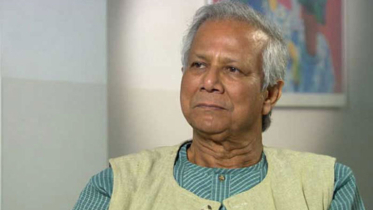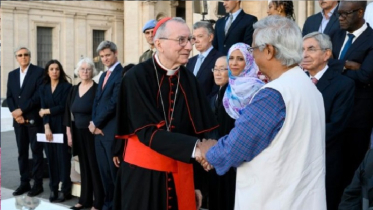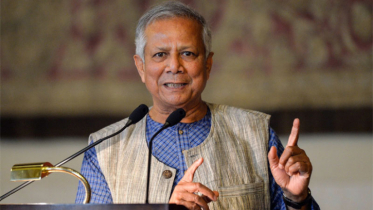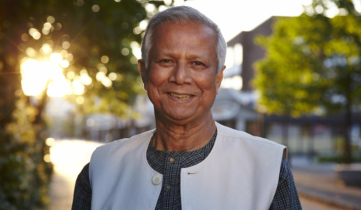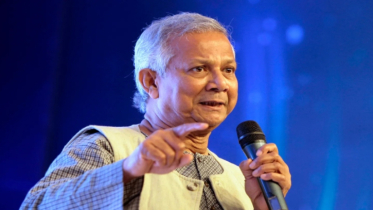Atlantic Council's contradictory report on Bangladesh's progress
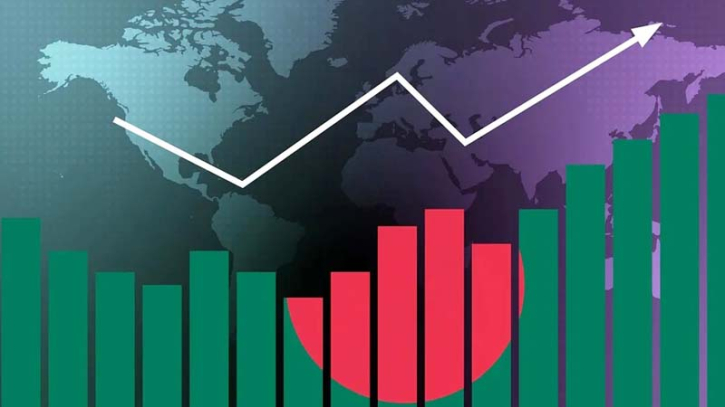
Recently, the Freedom and Prosperity Centre of the Atlantic Council released a country report titled Freedom and Prosperity in Bangladesh. The report suggests that while Bangladesh experienced a decline in freedom, it witnessed progress in terms of prosperity. A review of the report shows that Bangladesh outperformed its South Asian neighbours, India and Pakistan, in prosperity but faced a setback in the Freedom Index, overshadowing the achievement. According to the US-based think tank, Bangladesh ranked 99th in the Prosperity Index and 141st in the Freedom Index.
The Freedom Index includes measures of economic, political, and legal freedom. On the other hand, the Prosperity Index has six indicators: income, health, education, environment, minority rights, and inequality. These indices, developed by the Freedom and Prosperity Centre, tried to give a snapshot of the current distribution of freedom and prosperity in Bangladesh.
The Executive Summary of the report suggests a correlation between freedom and prosperity, claiming that regions and countries with higher scores on the Freedom Index also attain higher levels of prosperity. The US Ambassador to Bangladesh, Peter Haas, praised the Atlantic Councils perspective, calling it ground-breaking and asserting that it clearly established the relationship between freedom and prosperity.
He contends that freedom is the primary force behind prosperity rather than just one of its by-products. However, the basic idea of the report contradicts its Bangladesh assessment. For example, Bangladesh was ranked 107th in prosperity and 116th in freedom in 2000; now, its prosperity level has risen to 99, but its freedom score has fallen to 141. This contradiction challenges the idea that freedom and prosperity in Bangladesh are directly correlated, weakening the central thesis of the study.
The Atlantic Report criticizes Bangladeshs dominant-party system, claiming it impedes political competition. However, this argument requires a more thorough assessment. While the Bangladesh Awami League is unquestionably the most powerful political entity in the country, it is far from the only one.
A glance at the seat allocation in the 12th Parliament reveals a more nuanced picture than a simple "one-party" system. While the Awami League has a majority, a significant portion of the parliament is made up of independent candidates and the opposition. Gautam Lahiri, an independent foreign observer of the 2024 general elections in Bangladesh, argued in a recent article published in the Atlantic Council that a party achieving an overwhelming parliamentary majority through an electoral process does not equate to a one-party state. He noted that the AL and BNP had held similar supermajorities without turning Bangladesh into a one-party state. Similarly, India and Japan have experienced one-party dominance without losing multiparty democracy.
Bangladesh has enjoyed a lengthy period of political stability under Sheikh Hasinas leadership, and this secure climate has made the country an appealing destination for international investors. The World Bank has continuously rated Bangladesh as having political stability and a low level of violence or terrorism, which puts it well ahead of many of its South Asian competitors.
The country is surpassing regional economies with one of South Asias quickest GDP growth rates, putting it significantly ahead of the world average. According to UNCTADs World Investment Report 2023, foreign direct investment (FDI) inflows to Bangladesh increased by 20.2% to USD 3.48 billion in 2022 (compared to USD 2.89 billion in 2021).
The rising amount of foreign investment in Bangladesh is a clear indication of the growing trust that foreign companies have in the countrys economic prospects and capacity to provide a favourable operating environment. The per capita GDP is increasing year after year, indicating a stable economy with a solid basis for absorbing internal and external shocks. A number of measures, like stabilizing the national currency and controlling the balance of payment, have also been put in place to guarantee economic resilience in the event of outside shocks, such as the continuing Russo-Ukrainian war.
Bangladesh has made great progress in strengthening the rule of law and reforming the legal system. One of the main reforms is separating the judiciary from the executive branch, which has improved judicial independence. Several attempts have been made to modernise the court system, improve transparency, and reduce the backlog of cases to reduce the influence on the courts, guarantee that the legal system treats everyone fairly, and maintain judges independence.
Overall, despite criticisms by several Western centres about democracy and good governance, the country has been progressing steadily in the economic and political fields. However, more remains to be done to strengthen the countrys position in the international ratings. For this purpose, the government, along with all political parties, social institutes, business groups, and civil society, must work together to enlighten foreign entities about the countries genuine political, economic, and legal freedom. -Source: Daily Observer
.png)



